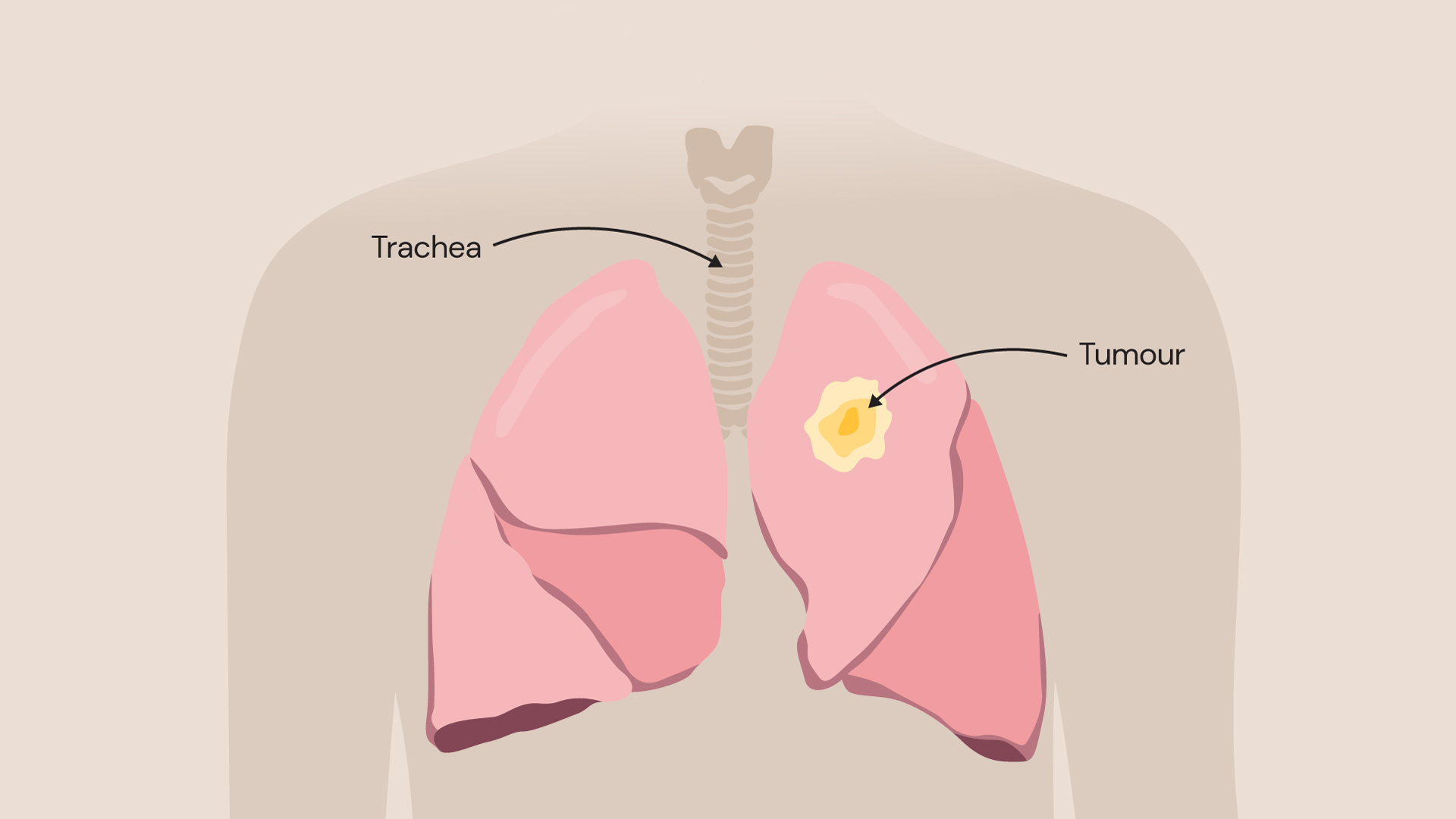Detecting lung cancer earlier for a better chance of treatment success
Lung cancer can be a complex condition to treat as it is often diagnosed at an advanced stage once the cancer has spread. However, if it is caught early, there is a higher chance that it can be successfully treated.
If the tumour is around 30mm in size, with no other spread, successful treatment rates are 64-70%. However, when tumours are diagnosed at a size of 20mm or smaller, the rate is 83%. If a patient is diagnosed with a tumour of 10mm or smaller, the rate is 92%.
Our world-leading specialists can assess your risk of developing lung cancer during a consultation, even before symptoms appear. If necessary, we will recommend a low-dose CT scan to understand whether you have lung cancer.
Contact our team to book your lung cancer risk assessment today.
Our consultant thoracic surgeon, Professor Eric Lim, explains the importance of early lung cancer diagnosis.
How does lung cancer develop?
Lung cancer develops when cells become abnormal and multiply out of control. Over time, they form a lump, also known as a tumour. Lung cancer can develop along the lining of your airways as well as within the tissues of your lungs.

Cancer in the lungs
Cancer can initially form in your lungs (called a primary cancer) and spread to other parts of your body (called a secondary cancer). It can also initially form in other parts of your body (for example, the breasts) and spread to your lungs.
There are two different categories of lung cancer. The most common is non-small cell lung cancer which is diagnosed in around 80-85% of cases. Small-cell lung cancer is much rarer and has a different treatment pathway. Learn more about the types of lung cancer.
What are the signs and symptoms of lung cancer?
Lung cancer usually has no signs or symptoms in its earliest stages. However, symptoms can include:
- a cough that gets worse
- chest infections that keep coming back
- coughing up blood
- feeling out of breath for no reason
- feeling more tired than usual
- losing weight for no reason
- a pain in your chest or should that has not gone away
If you experience any of these symptoms, it is important to speak to your doctor.
Who is at risk of lung cancer?
You may be at an increased risk of developing lung cancer if you:
- have a regular and heavy history of smoking. Smoking causes almost 90 percent of lung cancer deaths.
- have a strong family history of lung cancer
- work in a field that puts you at increased risk of lung cancer. This includes asbestos exposure during building work; silica exposure from glass making or bricklaying; regular exposure to diesel fumes as a mechanic or professional driver
- are exposed to high levels of air pollution. Small dust-like particles in air pollution called PM2.5 and PM10 are known to be associated with lung cancer
- have cancer in another part of the body which is spreading
- are over 50 years old (more than 8 in 10 lung cancer cases occur in the over 60s, but can occur at younger ages)
What happens at a lung cancer risk assessment?
Our lung cancer risk assessment service includes an appointment with a specialist who will assess your risk factors for developing lung cancer and then discuss these with you.
They will ask you about your:
- family history of lung cancer
- experience of smoking
- workplace exposures
This will help your consultant understand your risk level for lung cancer.
If your consultant thinks you may be at significant risk, they will recommend a low dose CT scan which can detect lung cancer even in its earliest stages before symptoms are present.
With early detection, lung cancer can be successfully treated.
Results and treatment options
Following your lung cancer risk assessment, you should receive the results of your tests within 3-5 working days.
Depending on the results of your examination and discussions with our consultant, you may be recommended further investigations, appropriate treatment or, in some cases, lifestyle changes to give you the best outcome possible.
Further investigations for lung cancer include:
- blood tests
- a PET-CT scan, which helps visualise active lung cancer
- a Iung cancer biopsy to determine the stage and type of lung cancer. Our experts use the latest Ion robot-assisted biopsy technology to sample tumours in their earliest stages
Treatment options available at our hospitals for lung cancer include:
- minimally invasive keyhole surgery called single-port video-assisted thoracoscopic surgery (VATS) to remove smaller lung tumours
- lung tumour ablation, a minimally invasive non-surgical technique to kill lung cancer cells by applying very hot or freezing temperatures directly to the tumour. This is recommended for patients who are not suitable for surgery
We work closely with cancer specialists at Royal Marsden Hospital, a world-renowned cancer centre in London, as well as Mount Vernon Cancer Centre in Northwood.
Consultants from these partner hospitals advise on systemic treatment options such as chemotherapy and immunotherapy that may be used in conjunction with surgery, or other non-surgical options such as radiotherapy for lung cancer.
Pricing
Our lung cancer risk assessment is priced from £250.
CT scans, if recommended, start from £1,117 (depending on the scan required).
Please contact our team for an appointment and further information.
Locations
Discover our lung care specialists
Meet our team of respiratory specialists. Whether it’s maintaining lung health or implementing innovative interventions, our experts are here to offer personalised care tailored just for you.
